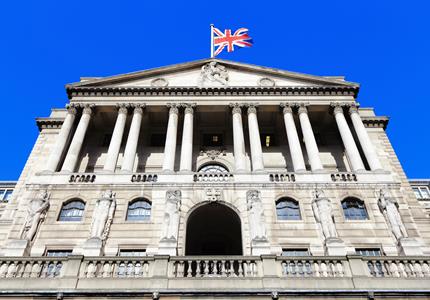

Ravenscroft weekly update - Interest rates back in the spotlight
Central Bank interest rate policy is once again in the spotlight with the Federal Reserve expected to reduce US interest rates and the European Central Bank expected to announce another round of quantitative easing.
By contrast the Bank of England stands out because, if anything, the Monetary Policy Committee’s guidance is that the economic outlook warrants an "ongoing tightening of monetary policy”. The minutes of the MPC’s last meeting are another holding operation which acknowledge the downside risks to the economic outlook of a no-deal Brexit but still keep the door open to raising base rate later this year if these risks do not crystallise.
Further evidence of the strength of the UK economy came in the form of the latest GDP figures. GDP rose by 0.3% month-to-month in May, matching the consensus. Month-to-month growth in March was revised up to +0.1%, from -0.1%; April was unrevised at -0.4% therefore May’s three-month on three-month growth rate, 0.3%, greatly exceeded the consensus, 0.1%.
The upward revision in March, together with the solid recovery in May after April’s stockpiling-related blip, suggests that quarter-on-quarter GDP growth is on course to slow only to zero in Q2, from 0.5% in Q1. That would exceed the current consensus, -0.1%, and match the MPC’s forecast in June, when it reiterated its guidance that the next move in interest rates likely would be up.
In short, GDP growth isn’t slow enough to warrant a rate cut. On the other hand the MPC will not alter monetary policy until there is clarity on Brexit.
At the time of writing the Conservative Party is voting between Boris Johnson and Jeremy Hunt as the Party’s new leader who will take over from Theresa May as Prime Minister. It is expected that Boris Johnson will win and he has said the UK will leave the European Union on 31st October 2019 “come hell or high-water”. However, he still has the same Parliamentary mathematics to overcome and so a no-deal Brexit could be blocked by Parliament. The hope is that the new leader – Johnson or Hunt – will negotiate a better Brexit deal with the EU which will then allow a more orderly separation from the EU. However, neither candidate has given much clarity on whether they feel they can negotiate a better deal so until the new leader is in place we expect UK interest policy to remain on hold.
If you are interested in reading more from the team, you can read its quarterly update here


